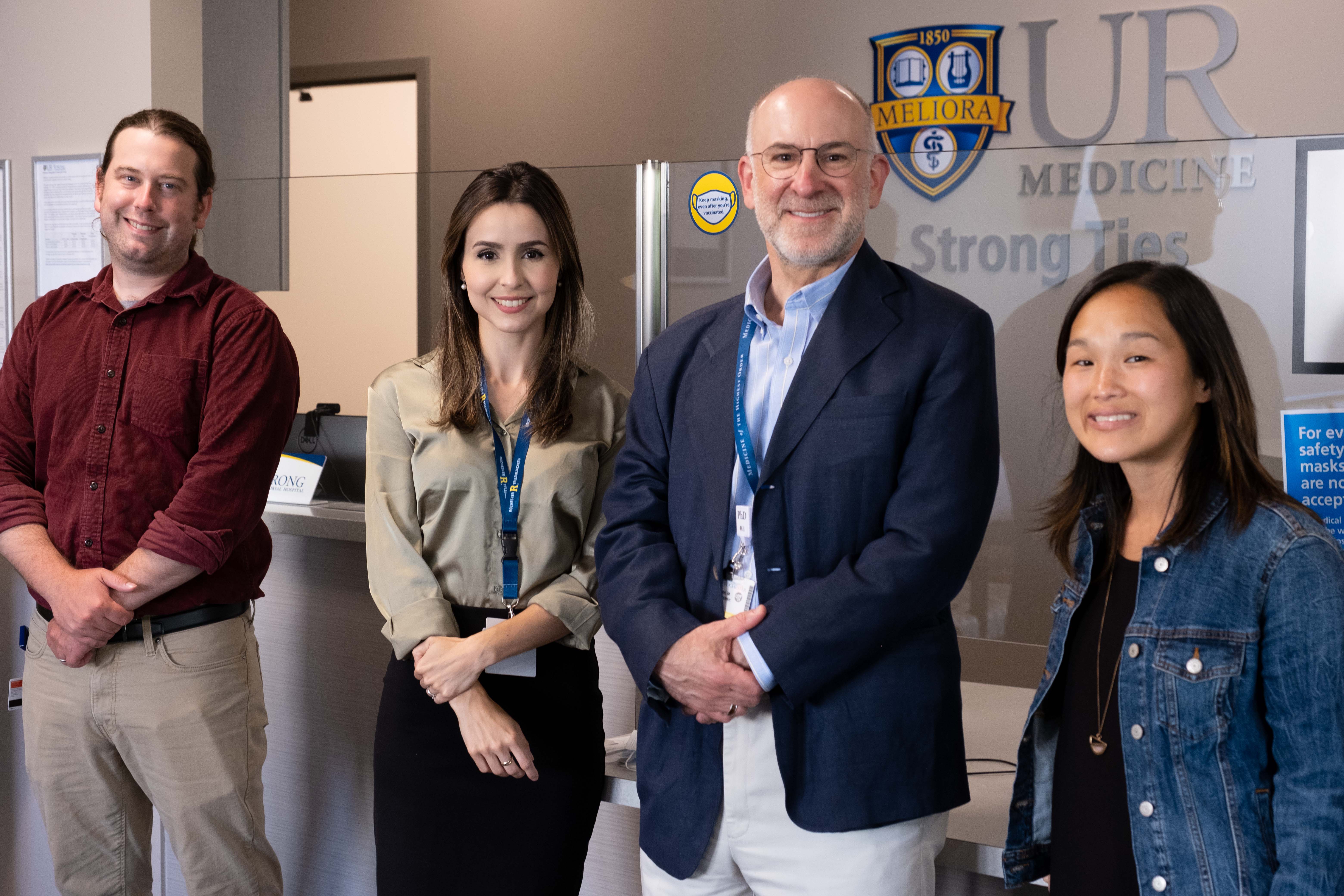
New Early Intervention Clinic Launched with Lee Foundation Support
University of Rochester Medical Center and Patrick P. Lee Foundation launch new early intervention mental health clinic
‘INTERCEPT’ is first clinical-high-risk program in Upstate New York
ROCHESTER & BUFFALO, N.Y. – Sept. 14, 2022 – A partnership between the Patrick P. Lee Foundation and the University of Rochester Medical Center (URMC) has led to a first-of-its-kind mental health clinic for Upstate New York. Known as INTERventions for Changes in Emotions, Perception and Thinking – or “INTERCEPT” for short – it is a new early intervention Clinical High-Risk (CHR) program for people at high-risk for the imminent development of psychotic disorders.
INTERCEPT, located at 2613 West Henrietta Rd. in Rochester, works with individuals and families to prevent the onset of a psychotic episode when possible and improve outcomes when not. The UR Medicine program follows a specialized care approach targeting 15- to 28-year-olds who present with the earliest signs of what may develop into a serious mental illness. Due to the impact of these conditions on the attainment of goals in school, work, relationships and independent living, early intervention is key and can drastically impact the course of treatment and quality of life.
The new clinic has been made possible by a $770,000 grant from the Patrick P. Lee Foundation, a private, family foundation committed to achieving immediate and measurable impact in the areas of education and mental health.
INTERCEPT is led by Steven M. Silverstein, Ph.D., an experienced, passionate clinical psychologist with a proven history of success, including leadership roles at Cornell Medical College and Rutgers University, where he created a similar early-intervention CHR program. Having earned his Ph.D. in Psychology from the University at Buffalo and previously worked at URMC, he was specifically chosen and recruited back to the region for this initiative. Throughout his career, Dr. Silverstein has developed innovative, effective treatment programs for people with, or at risk for, psychotic disorders.
“Like any illness, early identification and intervention leads to better outcomes,” said Dr. Silverstein, professor of Psychiatry, Neuroscience, and Ophthalmology at URMC. “Unfortunately, the tendency in mental health is to wait until there’s a crisis; that is, an initial psychotic episode. Yet, it’s far better for the patient if that can be avoided – and it often can.”
Even if an episode can’t be avoided, delaying it has huge benefits, since that allows for further development of life skills that can be relied upon when coping with the challenges of living with and recovering from a mental illness. Much research indicates that the average duration of untreated psychosis prior to hospitalization is 18 months. Such long periods of altered brain function and behavior changes make it more difficult for people to return to prior levels of functioning. INTERCEPT allows patients and families to meet with a range of mental and physical health providers to develop a course of treatment specific to their needs, often at the first sign of symptoms.
“Identifying people at the earliest stage, before potentially irreversible effects on brain and psychological function occur – and before the need for high doses of antipsychotic medications – is critical,” added Silverstein, who is also the George L. Engel Professor of Biopsychosocial Medicine, director of the Center for Retina and Brain, and Associate Chair for Research in Psychiatry at URMC. “Those medications often have serious side effects such as sedation and weight gain.”
Though based in Buffalo, the Patrick P. Lee Foundation strategically selected URMC to provide a central point to serve residents from Syracuse to Buffalo. The foundation also has an established URMC relationship, funding scholarships for psychiatric nurse practitioners as well as engineers.
“We feel strongly that we’re bringing something new to this community that is lacking,” added Patrick P. Lee Foundation Executive Director Jane Mogavero. “Yet, we’re also providing connections and trainings for professionals so that they can collaborate and increase their expertise. This clinic offers wrap-around services, helping patients and families forge strong support systems – which can be the difference between an illness advancing or not.”
Mental illness is at the core of the foundation’s mission, as Mr. Lee’s oldest son lived with schizophrenia without the advantages of early diagnosis and support services which are more common today. Now, and for nearly two decades, Mr. Lee and his foundation have been advocating for those struggling with mental health in the medical and legislative communities, while educating society at-large.
INTERCEPT has formed a Mental Health Advisory Council, consisting of health experts from Rochester, Buffalo, Syracuse and beyond. This group will provide guidance and serve as a sounding board for this new clinic and initiative.
- Rita Cuda, L.M.H.C., BestSelf (Buffalo)
- Zhanna (Jane) Elberg, M.D., Erie County Medical Center (Buffalo)
- Margery Stanton, L.M.H.C., BestSelf (Buffalo)
- David Dodell-Feder, Ph.D., University of Rochester (Psychology)
- Michael Scharf, M.D., URMC (Psychiatry)
- Arielle Sheftall, Ph.D., URMC (Psychiatry)
- Wanda Fremont, M.D., SUNY Upstate Medical Center (Syracuse)
- James Demer, M.D., New York State Office Mental Health (Syracuse)
- Nevena Radonjic, M.D., SUNY Upstate Medical Center (Syracuse)
- Vijay Mittal, Ph.D., Northwestern University
The Patrick P. Lee Foundation was established in 2007 and concentrates its investments in education and mental health. With $50 million in assets under management, it identifies opportunities to increase its impact by working with national partners to advocate for key mental health policy initiatives at the state and federal levels. It also created and confers the annual Distinguished Lee Scholar Award, recognizing exceptional scholars who embody the values of integrity, leadership and service to others.
To learn more about INTERCEPT, visit www.urmc.rochester.edu/mental-health-wellness/intercept or call Trisha Kilbourn, L.C.S.W., Clinic Coordinator, at 585-276-9270. For more on the Patrick P. Lee foundation, visit www.lee.foundation.



